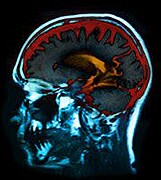Correlation with worse cognitive and functional status, dementia among elderly adults
THURSDAY, June 4, 2015 (HealthDay News) — For older adults, hyperhomocysteinemia is associated with worse cognitive status, even after accounting for B group vitamin (BGV) status, according to a study published online June 1 in the Journal of the American Geriatrics Society.
Francesco Bonetti, M.D., from the University of Ferrara in Italy, and colleagues examined the correlation between hyperhomocysteinemia and cognitive function in a cross-sectional study. Data were collected for 318 elderly individuals (≥65 years) divided into four groups according to plasma homocysteine (high versus normal) and BGV levels (normal versus deficient).
The researchers found that independent of BGV status and other confounders, hyperhomocysteinemia (>15 µmol/L) correlated with higher prevalence of cognitive and functional impairment and dementia (odds ratio, 1.98). The worst functional status and highest prevalence of dementia were seen for participants with hyperhomocysteinemia with normal BGV status (high homocysteine/normal BGV versus normal homocysteine/normal BGV: odds ratio, 3.20). There was a negative correlation for homocysteine levels with folate, vitamin B12 levels, and glomerular filtration rate; positive correlations were seen for homocysteine levels with free thyroxine and uric acid levels.
“Hyperhomocysteinemia was associated with worse cognitive and functional status and dementia independently of BGV levels,” the authors write.
Copyright © 2015 HealthDay. All rights reserved.








